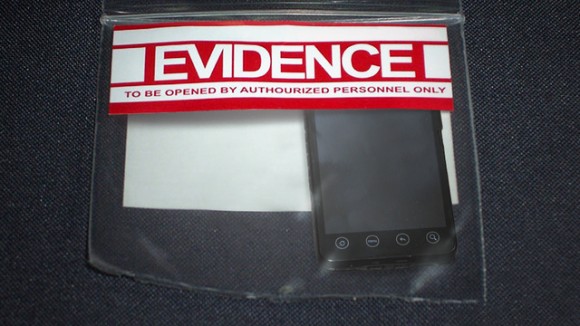
Tarrant County District Attorney Sharen Wilson

Sharen Wilson, who took office in 2015, is the elected Tarrant County District Attorney. She is the top of all Fort Worth prosecutors, managing a large office of Assistant District Attorneys, investigators, support staff, and even a therapy dog. Prior to assuming her new role as the Tarrant County District Attorney, Sharen Wilson presided over Criminal District Court Number 1 as a District Judge. Her office receives cases from the various police departments across Tarrant County, investigates the cases, and files misdemeanor or felony criminal cases. The Assistant District Attorneys under Sharen Wilson present cases to grand juries and manage dockets in the 20 Tarrant County criminal courts and the Courts of Appeals. If you are interested in observing a criminal trial in Tarrant County, check out the Tarrant County Trial Board for a list of cases each week.
Fort Worth Prosecutors | Tarrant County DA
The Tarrant County District Attorney office has over 150 Fort Worth prosecutors and over 50 investigators. The office has a budget of $38 million dedicated to criminal prosecutions and investigations in Tarrant County. Colloquially, every Assistant District Attorney is referred to as a “Tarrant County DA” or “prosecutor,” but the ultimate authority over criminal prosecutions is retained by Sharen Wilson. Fort Worth prosecutors are known across the state as fair and collegial attorneys. They have a reputation for taking a fair look at each case and providing all available information to the defense bar in a timely manner. Although the Tarrant County District Attorney office is one of the largest in the state, in one of the largest counties in the state, the office and its staff carry themselves with small-town values. While each criminal case is different and may have its own challenges, our criminal defense attorneys have always been satisfied with the professionalism of the Tarrant County DA office.
Free Consultation of Tarrant County Criminal Cases
Our Fort Worth criminal defense attorneys square off every day with the Tarrant County DA office. We have a proven track record of favorable results for our clients. We understand that every case and every client are different. We take a personal approach to every client and pursue every option to address our clients’ individual needs. For a FREE consultation of your Tarrant County criminal case, contact our team at (817) 993-9249.




 I’ll never forget something I heard back when I was going through Marine Corps Officer Candidate’s School. After somebody said “thank you” to a Drill Instructor, the Drill Instructor looked at the person (in a way only a Drill Instructor can) and responded “Don’t thank me. The government thanks me every two weeks!”
I’ll never forget something I heard back when I was going through Marine Corps Officer Candidate’s School. After somebody said “thank you” to a Drill Instructor, the Drill Instructor looked at the person (in a way only a Drill Instructor can) and responded “Don’t thank me. The government thanks me every two weeks!”
 Every criminal allegation exists in a gray area. If one were to focus solely on the police report, a criminal case might seem black and white. But it’s not. There are secrets, personalities, motivations, half-truths, unnamed witnesses, and much more lurking in the shadows of every case. One of the keys to a successful defense is to uncover those facts not articulated in the police report and give the case a context. This is why we use a private investigator as part of our defense team.
Every criminal allegation exists in a gray area. If one were to focus solely on the police report, a criminal case might seem black and white. But it’s not. There are secrets, personalities, motivations, half-truths, unnamed witnesses, and much more lurking in the shadows of every case. One of the keys to a successful defense is to uncover those facts not articulated in the police report and give the case a context. This is why we use a private investigator as part of our defense team.


 If you’ve ever gone through a home renovation or something similar, you have likely experienced periods of frustration with your contractor or construction crew. This may stem from missed deadlines, shoddy workmanship, mistakes, or general incompetence. In extreme cases, you might have felt duped by the contractor, so much that you think he should be held criminally liable for the promises on which he failed to deliver.
If you’ve ever gone through a home renovation or something similar, you have likely experienced periods of frustration with your contractor or construction crew. This may stem from missed deadlines, shoddy workmanship, mistakes, or general incompetence. In extreme cases, you might have felt duped by the contractor, so much that you think he should be held criminally liable for the promises on which he failed to deliver.
 Many of our criminal cases begin with traffic offenses. Something as simple as failing to signal for a lane change can quickly become a DWI investigation if the officer suspects the driver has been drinking. Often, during a traffic stop an officer will ask for consent to search the vehicle and then, depending on what might be in the car, the traffic stop turns into an arrest for possession of an illegal substance or contraband. (Tip: Never give consent to search. Ever.)
Many of our criminal cases begin with traffic offenses. Something as simple as failing to signal for a lane change can quickly become a DWI investigation if the officer suspects the driver has been drinking. Often, during a traffic stop an officer will ask for consent to search the vehicle and then, depending on what might be in the car, the traffic stop turns into an arrest for possession of an illegal substance or contraband. (Tip: Never give consent to search. Ever.)
 U.S. Supreme Court Holding: YES – The 4th Amendment prohibits officers from searching a suspects cell phone for information without a warrant.
U.S. Supreme Court Holding: YES – The 4th Amendment prohibits officers from searching a suspects cell phone for information without a warrant.





